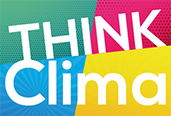CC denial organizations
Think tanks – also called policy institutes or research institutes – are interest groups that conduct research and generate knowledge to advocate on all sorts of topics potentially subject to political regulation. Think tanks can be categorized into many different types depending on their ideological stance, sources of funding, topics addressed and working routines. Some advocacy organizations that are not research institutes may also produce knowledge and be considered think tanks in their fields. This is the case of some green NGOs, whose reports on, for instance, the political economy of global warming or alternative climate solutions, are very influential.
In all cases, these actors are largely involved in the use of communication strategies and tools. For this reason, a multidisciplinary approach that includes the perspective of communications in its widest sense (critical public relations, public affairs, marketing, the political economy of communication and public relations) has the potential to be more effective in studying such groups.
The Unites States is the country where the climate change denial industry is most powerful. This explains why this country has produced the most important literature on climate denial to date. U.S. journalists pioneered the research in the late 1990s by showing the links between denialists and economic interests. Social scientists then followed this path by providing an in-depth analysis of discourses, strategies and further links with the industry. Concerned citizens, ex-government officials, independent analysts and NGOs have also joined the field to provide additional insights into the campaign against climate science in the U.S. One of the main contributions all of the above have made has been to shed light on the role think tanks have played in shaping public opinion in the U.S.
In Europe, research on the topic has been much more limited due to the number and scope of denial organizations and experts being considered only marginal to date. The impacts denialists have had on European policymakers, the media and public opinion have never reached the same scale – or at least had such visible results – as those in the U.S., where large numbers of citizens, very much influenced by the “denial machine” (Dunlap, 2013), still maintain a sceptical stance towards anthropogenic global warming (AGW). However, the strength of the U.S. denial machine, the globalization of capitalist interests and the many obstacles permanently encountered by EU climate mitigation policies clearly suggest that Europe must ultimately be much more influenced by climate denial forces than Europeans wish to acknowledge. The THINKClima project focuses on the role of think tanks in Europe in the shaping of public opinion regarding climate change and climate denialism.
References
Dunlap, R.E. (2013). Climate Change Skepticism and Denial: An Introduction. American Behavioral Scientist, 57(6): 691-698.
